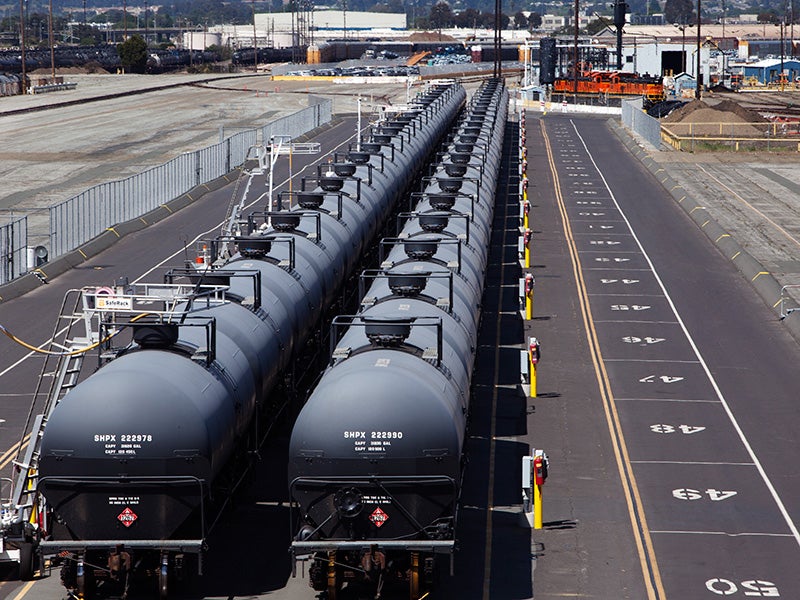145,000+ Public Comments on Draft Federal Oil Train Regulations Cite Weak Safety Standards
Call for immediate ban on dangerous tanker cars
Contact
Today, citizen groups submitted more than 145,000 individual public comments to the Obama administration on two rulemakings on the safety of oil trains and emergency response to derailments, spills and fires. The strong public response was highly critical of the draft regulations proposed by the Department of Transportation.
Five public interest groups—Earthjustice, ForestEthics, Oil Change International, Natural Resources Defense Council, and Sierra Club—today also submitted detailed technical comments on the proposed rulemaking. Additional groups, including Communities for a Better Environment, CREDO and more than 35 others, also submitted supporting comments calling on the administration to take immediate steps to improve oil train safety, including:
- An immediate ban on the transport of crude oil in dangerous DOT-111 rail cars.
- A quicker phase-out of other unsafe tank cars from crude shipping.
- Prohibit shifting DOT-111 tank cars to tar sands crude transport.
- Expand to all crude-by-rail trains oil spill response planning and sharing of emergency preparedness information with to state, local and tribal governments and the public.
- Impose speed limits and require state-of-the art braking systems for crude-by-rail trains to protect the public in the face of what the National Transportation Safety Board has called “unacceptable public risks.”
- Require liability coverage to cover the true cost of a crude-by-rail disaster.
The groups released the following statements:
Byron Gudiel, Communities for a Better Environment, executive director: "New projects could bring as much as 100 million barrels per year of tar sands oil to California refineries by 2015. Every community along these rail lines is in danger. We need this administration to protect everyone from this immediate danger including low income communities and communities of color who have suffered the impacts of bad environmental policy, poor enforcement, and disregard for public safety and health for decades."
Josh Nelson, CREDO Action campaign manager: "You can't make this stuff up. Oil trains are exploding—and in one instance literally incinerated an entire town—because the oil industry doesn't want to pay for the kind of rail cars necessary to transport petroleum safely. It's a no brainer. The Department of Transportation must protect the 25 million Americans who currently live in the path of exploding oil trains by banning the use of the dangerous DOT-111 rail cars."
Patti Goldman, Earthjustice attorney: “The Department of Transportation proposes to double the crude-by-rail fleet before using new and retrofitted tank cars to replace the DOT-111s and other unsafe tank cars. This is unacceptable. Safety must come first, before growing the crude fleet.”
Matt Krogh, ForestEthics campaign director: “The administration is on the wrong track when it comes to protecting the 25 million Americans who live in the oil train blast zone, and the millions more who live downstream and downwind. The oil industry is expanding on a rail system that is patently unsafe for trains moving millions of gallons of hazardous, explosive crude oil, and so far the federal government appears asleep at the switch.”
Devorah Ancel, Sierra Club staff attorney "DOT falls short of its obligation to ensure that transport of volatile crude oil by rail is done in a safe and responsible manner. The proposed rule would keep thousands of communities in the U.S. and Canada under the continued threat of catastrophic train crashes."

Additional Resources
About Earthjustice
Earthjustice is the premier nonprofit environmental law organization. We wield the power of law and the strength of partnership to protect people's health, to preserve magnificent places and wildlife, to advance clean energy, and to combat climate change. We are here because the earth needs a good lawyer.